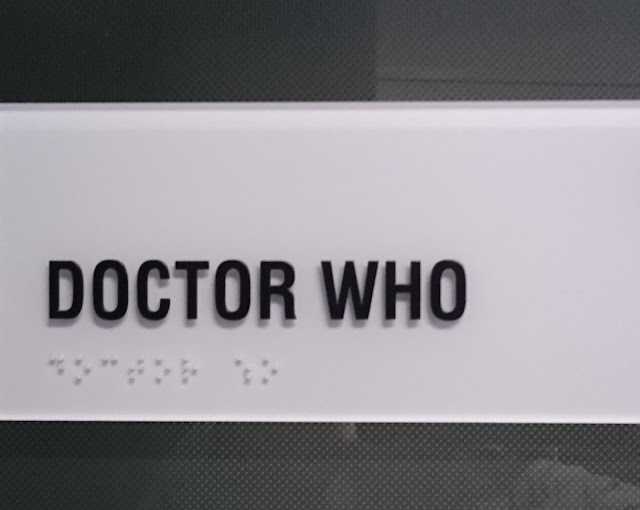The Irish Medical Times - Big Doc: will it be the next to fall?
But where do I stand on Dr Twitter?
I stand well away. My turnabout happened abruptly during one of the incarcerations in our homes, when I found myself spouting viral facts I couldn’t substantiate, gleaned from one of the ‘Holy-Mother-of-God’ twitter threads. I think the facts were from an epidemiologist, or was it an endodontist, we’ll never know.
Did the explosion of medical personnel on social media increase our confidence in doctors or are we all over exposed and weary of yet another expert?
I think the self appointed medical experts on social media fed the populous who were hungry for information. Some sparked debate, helped push through new protocols and highlighted the need for action. Stating facts, figures and likelihoods placated our fear of the unknown and managed our expectations, even through the horrors. Following some of these ‘experts’ gave me a sense that we were documenting where we couldn’t control, and that had to count for something. Perhaps it also gave the authors a feeling of release and community. They may have strongly wanted to convey transparency, to cry for help, and importantly to call for action.
However, were too many expert voices? Too many people vacating the contents of their heads into the collective consciousness? The downside of elucidating is the fear and arguments it can potentially cause. The misinformation, misinterpretation, repetition, sanctimony, the self-obsession on all sides. It can create a battlefield rife with ad hominem attacks; a bouncy castle of naive realism where you think everyone else is biased and only you see reality as it really is, others are idiots, liars or morally derelict (at least, that’s how I personally like to start every social encounter).
As one of my primary school teachers was prone to saying, just because you have a thought doesn't mean you have to share it.
On the other hand, the sheer intensity and volume of medical opinions on social media allowed themes to emerge that had long been ignored such as drastic underfunding and dire working conditions. In order to manifest a modern movement, social media is clearly the bugle call.
The covid crisis was an unprecedented moment in modern history, we are entering a new phase now. As we know, Twitter is under new management and going through a change; Meta, Stripe and Amazon are also tightening their belts. I move in tech circles (don’t we all) and word on the virtual street is that everyone is checking their email daily with one eye scrunched and a tight grip on their blue-ticks.
Cuts aside, what’s the prognosis for Big Doc? Evidently, social media is not going away. Humans are hardwired to want to 'get on' with people and also 'get ahead' of them, we are obsessed with our perceived status. This is also reflected in the animal world, for example, ravens hang about and listen to other raven groups gossip, especially if that group has a raven who has had a reversal in status (a little birdie told me that).
However, I am personally afraid of social media in its current form. I am genuinely concerned about my daughter delving into this superficial curated world where people can 'like' or 'cancel’ hundreds of people before breakfast. I've heard c-suite executives say regulation is strangulation. Let's all take a deep breath, start regulating, and see where that goes.
I predict (with my crystal ball) that Big Doc may become the parent we don’t want to listen to. Our online existence will become more functional and less of a soapbox free-for-all. I think people will still use social media for information (medical and otherwise), entertainment, pontifications, celebrations, criticism, bragging and gossip (medical and otherwise) but I feel at this point we all looked behind the curtain and saw the wizard. Like covid, it will become part of life but hopefully not consume our lives. We may actually have to resort to looking each other in the face and scramble around to start the scaffolding of a conversation.
I imagine the extensive medical presence on social media will naturally remodel into a new form. This may start with an increase in ‘edutaining’ - short playful yet educational video reels on health. The shift will continue towards ‘mobile first’ - health pages, devices, apps, websites are engineering content to prioritise mobile devices first and foremost, more visuals and less words. Of course, as I’ve said many times, first party data is the new oil, the depth of data will make the social media experience powerful and personalized, probably through your projector band or smart contact lens! This could allow for Augmented Reality (AR) in the online health space, AR could overlay a computer generated 3D image of a person’s body parts to demonstrate the working of their organs or the surgery they may require.
Social media will not be limited to a handful of apps on our smartphones, it will likely become part of the fabric of human existence, it will be in our clothes, appliances, architecture, transport, worklife, activities, hobbies, and our bodies. Like a fish who doesn’t recognize that it swims in water, we'll probably be knee deep in our new online world before we realize we’re even there. [Glub-Glub]


Comments
Post a Comment